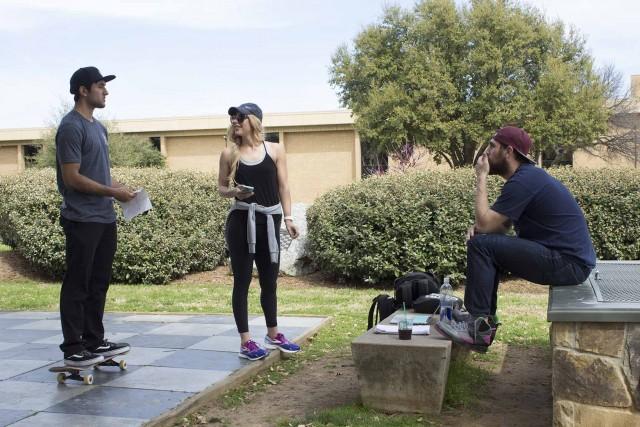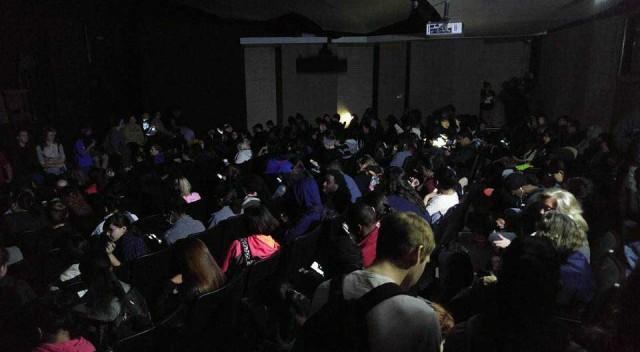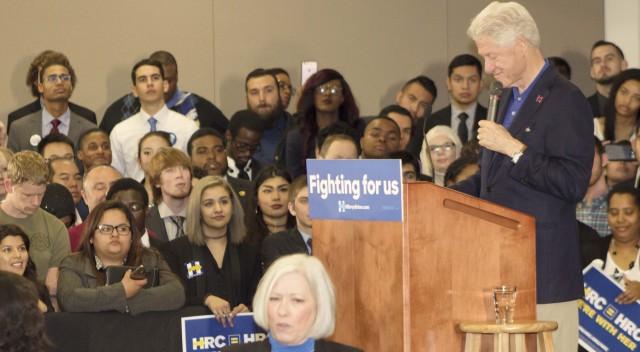By Martin Ramirez/ reporter
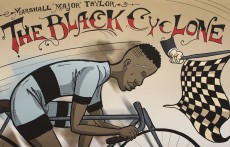
Photos by Bogdan Sierra Miranda/The Collegian
Comic artist Joel Christian Gill visited South Campus to show his work and talk about obscure black history March 4.
Gill spoke about his journey as an artist, his comic Strange Fruit and his views on African-American history and American culture.
Gill wanted to draw comics, so he attended community college and went into the graphic design program. He took a painting class and fell in love with painting, spending the next few years doing so. When he moved to attend Boston University, he was warned by a friend to avoid some places at night.
“I discovered something really interesting: Racism exists in the North too,” Gill said. “It doesn’t just exist in the South.”
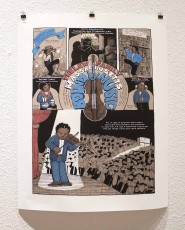
When Gill went back to his small Appalachian Mountain town in Southwest Virginia he did a series of paintings to demonstrate “how far we’ve come, but how far we still have to go.” His series was all lynching paintings based on Billie Holiday’s song “Strange Fruit.”
“One of the paintings in that group was a painting with a noose around my neck, and the noose was frayed,” he said.
The piece was called “Strange Fruit: He Cut The Rope” and would become the centerpiece of his series.
“It was sort of a way to say … although I’m not hanging from that tree, I am free, but it’s still there. It’s still that weight that thing that makes me sit in an elevator with a white woman and make sure that I am a courteous person,” he said. “Or that thing when
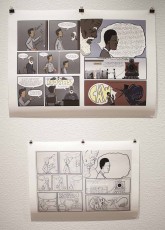
you move into a neighborhood, into an affluent neighborhood like I live in, and you wonder whether your neighbors are going to dislike you because you’re black.”
At his gallery, a friend told Gill his paintings were trying to tell a story but failing. So Gill went back to comics to successfully tell stories. While researching, he came across the story of Henry “Box” Brown, a slave who mailed himself from Virginia to Philadelphia.
After he drew Brown’s story, he started to sell his comic at indie comic shows. When people saw his comic, they would begin to tell him other stories, such as Harry “Bucky” Lew, the first black man to integrate professional basketball in Lowell, Massachusetts, and Richard Potter, the first African-American magician and first successful American-born stage magician.
When approached by publishers, Gill was told they didn’t like the title, but he kept it anyway.
He asked Henry Louis Gates Jr., director of the Hutchins Center for African and African American Research at Harvard University, to write a forward. Gates wrote it and defended the title without Gill asking.
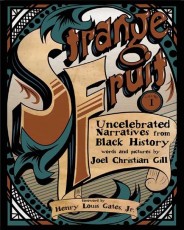
“My goal is to make as many stories as I can about obscure black history until this is no longer obscure black history,” he said. “We tend to separate ourselves out in these disparate groups. When [foreigners] look at us from the outside, they see American. What is it that connects us? It’s our shared history, our shared culture and our shared stories.”
Pages and edits from Gill’s comic are currently on display at the Joe B. Rushing Center of Performing Arts on South Campus.






















